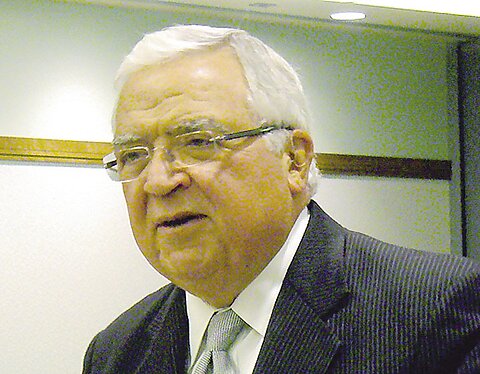Mike Fox
Most Americans think of our criminal justice system as being like Law and Order, where all defendants go to trial, and prosecutors must prove their case to a jury. But that’s largely fictional at this point—the shocking reality is that 98.3 percent of all federal convictions (and a similar percentage of state convictions) come from guilty pleas. Perhaps even more disturbing is that this state of affairs is passively accepted by most judges.
Nonetheless, a few jurists have emerged who believe that judges themselves bear some responsibility for the plea-bargaining outcomes that emerge from their courtrooms. And those judges are beginning to question aspects of our system of plea-driven mass adjudication, perhaps because it closely resembles an assembly line system of justice.
Consider what happened earlier this month in the Colorado courtroom of Senior US District Judge John Kane. The long-serving jurist has earned a reputation for his willingness to scrutinize plea bargains that appear potentially coercive. During what was supposed to be a routine status hearing, Judge Kane informed two defendants and their respective counsel that his sentencing decision was going to be something more than a rubber stamp. More precisely, he explained that the sentence he ultimately hands down would be determined entirely independent of whatever plea bargain (if any) the defendants agreed to. That pledge signaled a significant departure from the typical plea-bargaining process.
Judge Kane then went further: he criticized the provision of the sentencing guidelines that offers a point reduction for “acceptance of responsibility.” He quipped that describing a guilty plea that way was something “only George Orwell would do” and reasoned that applying this reduction would violate his judicial oath. That oath, he said, creates a duty “to determine a just and proper sentence in the circumstances, and not to follow some quantitative gyrations that are done by an anonymous group.”
He emphasized that he “[w]ill not use the guidelines at all” and intends to sentence consistent with the general principles found in the United States Code.
In fact, sidestepping the sentencing guidelines to achieve what he regards as a fairer result is nothing new for Judge Kane. During his nearly five decades on the bench, he has witnessed the toll of mass plea bargaining and has regularly voiced concerns about the inherent bargaining advantages of prosecutors and the pressures they exert that unduly influence a defendant’s decision to forgo their right to trial. In 2012, Judge Kane rejected a plea agreement that would have required the defendant to waive his right to appeal, writing that “Indiscriminate acceptance of appellate waivers undermines the ability of appellate courts to ensure the constitutional validity of convictions and to maintain consistency and reasonableness in sentencing decisions.”
Judge Kane is all too aware that a defendant’s culpability sometimes has little or no relation to the choice to plead guilty—a choice that, too often, is no choice at all. He regularly notes that mandatory minimum sentencing laws can expose defendants to draconian prison terms if convicted at trial. This stark disparity, known as the “trial penalty,” creates a coercive environment in which even those who insist on their innocence may feel compelled to plead guilty.
For Judge Kane, plea bargaining shifts the focus of the justice system away from trials by citizen jurors towards a prosecutor-driven system of plea-driven mass adjudication. He believes that sentencing judges have an obligation to examine whether guilty pleas are truly voluntary. He notes that judges must be willing to look beyond surface appearances and delve into the underlying circumstances that lead a defendant to plead guilty. If a plea appears to be driven by undue pressure or the fear of unreasonably harsh consequences post-trial, he argues that judges must reject that plea to safeguard the integrity of the judicial process. In short, his view is that judges must mitigate the coercive realities of the plea-bargaining regime.
Senior Judge Jed Rakoff of the Southern District of New York has also become a forceful critic of plea bargaining. Just last month, Judge Rakoff ruled that the one-point reduction in the sentencing guidelines for defendants who promptly plead guilty is unconstitutional. According to Rakoff, that measure creates an unconstitutional trial penalty.
Like Judge Kane, Judge Rakoff believes that the immense power of prosecutors helps fuel coercive plea bargaining. Prosecutors’ ability to determine charges, coupled with the leverage of severe mandatory minimum sentences, allows prosecutors to exert significant pressure on defendants. The trial penalty discourages defendants from exercising their constitutional right to a jury trial, whether or not they are actually guilty.
Judge Rakoff argues that the plea-bargaining process will lack fairness until it includes more transparency and judicial oversight. Plea negotiations regularly occur privately and off the record. This likely results in some defendants feeling compelled to plead guilty, fearing a much harsher sentence should they be convicted at trial. And oftentimes, that risk of the trial penalty is simply too great to bear.
Judge Rakoff understands that the central goal of our criminal justice system is to ensure that only those acts and individuals society deems truly culpable result in criminal punishment. He raises the alarming possibility that a significant number of criminal defendants may falsely plead guilty due to the coercive pressures of the system. He also worries that the plea-bargaining status quo erodes public trust in our criminal justice system.
Of course, Judge Kane and Judge Rakoff are in the minority. The Supreme Court appears committed to business as usual. The justices have wholly abdicated their constitutional duty to police the plea-bargaining regime. The Court has referred to plea bargaining as “[n]ot some adjunct to the criminal justice system, but the system itself.” The High Court has unabashedly embraced even the most distorted plea-bargaining practices, some of which are negotiations in name only. Prosecutors have become incredibly adept at inducing people to plead guilty, allowing them to exert only minimal effort and expend relatively few resources to secure what we call convictions. Judges who face enormous dockets—due in part to rampant overcriminalization—have come to view plea bargaining as promoting judicial efficiency.
Plea bargaining was wholly unknown at the Founding. Likewise, the Framers prioritized liberty over efficiency and did not intend it to be easy to deprive citizens of their liberty. Accordingly, they devised a system that asked citizens to take time away from their personal lives. Founding-era jurors were tasked not only with assessing culpability but passing judgments on the fairness, legitimacy, and morality of the law at issue. Trial by jury was not supposed to be cheap. Prosecutors were not supposed to be able to secure convictions for cents on the dollar by coercing defendants into giving up their constitutional right to a trial by jury. Historically, prosecutors oversaw a public trust: they had to decide whether bringing a particular case was worth investing significant public resources. That was because the criminal justice system has an extraordinary power to destroy people’s lives; it was therefore intended to be used sparingly and as a last resort.
Our modern world is very different. Today, the prevalence of coercive plea bargaining undermines the public perception of our criminal justice system. A system blighted by coercive plea-bargaining merits neither our confidence nor our support, leaving skeptics to ask whether it even embodies justice.
A criminal justice system cannot be effective unless the public understands it as legitimate. But resistance is not futile. Kane and Rakoff are not the only federal judges who have voiced discontent with plea bargaining.
Citizen jury trials are the norm that the Founders contemplated and the standard that the Constitution commands. If enough judges do their due diligence by monitoring the fairness of plea bargains, the Justice Department will have no choice but to recalibrate the scales of justice. Such a shift might lead to more frequent citizen jury trials. And that might make prosecutors think more carefully about whether to pursue a case.










